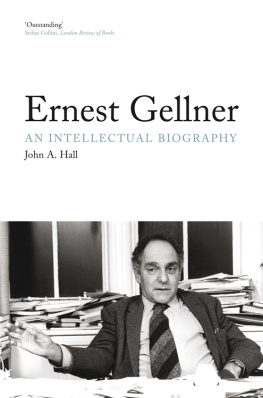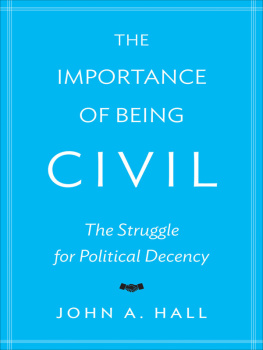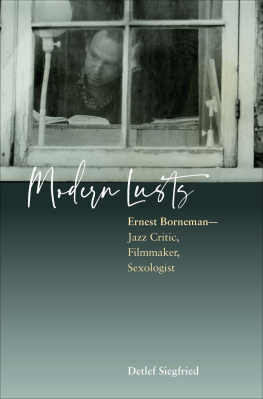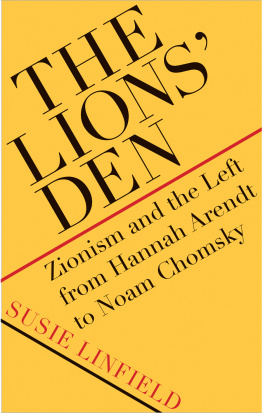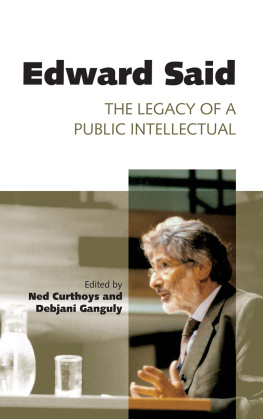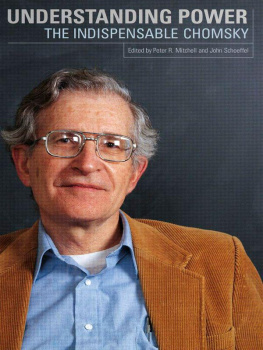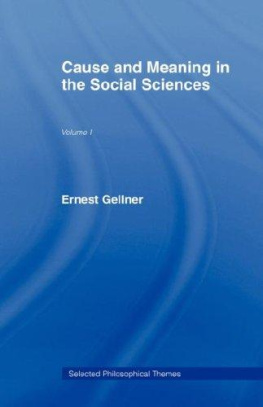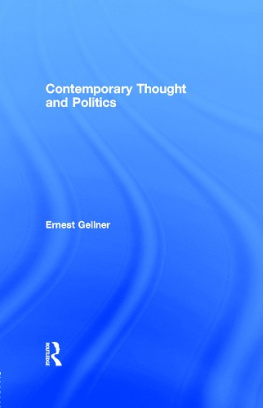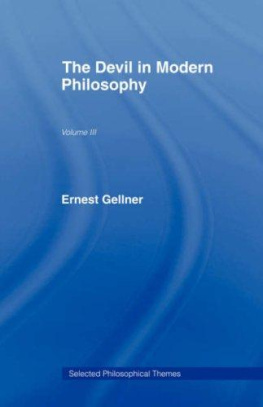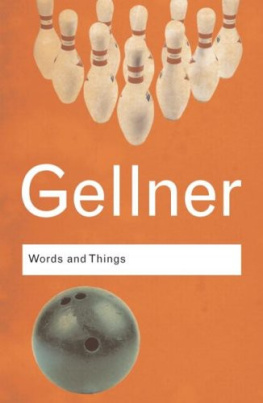JOHN A. HALL
John A. Hall 2011
When Ernest Gellner died in November 1995, the flags of the University of Cambridge, where he had taught from 1984 to 1992, were set at half mast. This reflected the status he had achieved in the last years of his life, as a public intellectual able to comment on a very wide range of issues. It did not mean, however, that his views had lost their bite. If Gellners name had been made during the scandal surrounding his early attack on Oxford linguistic philosophy, his late essays not least his attack on Isaiah Berlin as a Savile Row postmodernist were capable of causing just as much outrage. Still, many felt affection for Gellner, with whose voice they had become familiar, and to whom they often turned for guidance and insight. All the same, very few people knew what to make of him. He was hard to pin down. For two decades he had the curious title of Professor of Sociology with special reference to philosophy at the London School of Economics and Political Science (LSE) held, it should be noted, in two different departments: first Sociology, then Philosophy, Logic and Scientific Method before taking up the William Wyse Professorship of Social Anthropology at the University of Cambridge. He had separate reputations as scholar of Islam, theorist of nationalism, philosopher of history, and historian of ideas. He ended his career in Prague, the city in which he had grown up as a boy, though in his final years he was most interested in developments in Russia. His status as public intellectual rested on this background, that of a multilingual polymath, a modern philosophe. He was sometimes cited as one of the last great thinkers from Central Europe whose Jewish background meant a direct experience of the twentieth centurys horrors.
It is possible to hint at what follows by noting the very particular way in which Gellner fits into this last category. The contours of his formative experiences are clear, and were pungently expressed by Gellner himself Illusion or no, the Jews felt the pull of belonging just as much as others did perhaps even more. But the romantic call to belong affected the minority Jewish community and the demographic majority in two very different ways.
[T]he minority had no illusion of its own to go back to. It only had the recollection of the ghetto, which by definition was not a self-sufficient community or culture at all, but an unromantically (commercially) specialized sub-community of a wider world within which it was pejoratively defined. Although in fact a literary populist nostalgia for the shtetl does exist nevertheless, Jewish populist romanticism is in the end a contradiction in terms
So the romantic reaction placed the Jews in a dilemma They were largely deprived of the illusion of a possible return to the roots, an illusion indulged by their gentile neighbours with enthusiasm and conviction. Thou shalt not covet thy neighbours Gemeinschaft! But, of course, one does. So whats to be done? The options which were logically open were either to infiltrate the Others Gemeinschaft, or to create a new one of ones own, whether or not there had been any peasants available for the past two millennia, who could define its folk culture.
But the desire to enter does not mean that one will be permitted to do so or, even worse, permitted to remain within, as relatively assimilated German Jews were to discover. In consequence, a third option arose, rejecting the similarly homogenizing forces of assimilation and Zionism, namely that of pure cosmopolitanism. A political version of this cosmopolitanism which had world-historical consequences was that of the Jewish-born activists and intellectuals who became the key stratum of the early Bolshevik leadership, Allegiance to cosmopolitanism could also be demanding, potentially homogenizing into a single model, for all its emphasis on the universality of human values.
Thinkers of Jewish background lived the tension between cosmopolitanism and ethnonationalism in a variety of ways, and their ambivalence was in many cases intensified by the creation of the state of Israel. The uniqueness of Gellners thought derives from his acceptance of this tension, acknowledging each positions weaknesses, whilst continuing to recognize both the power of universalism and the importance of nationalism. Accordingly, Ludwig Wittgenstein, whose thought Gellner had disliked from the start, became the great bte noire in the book he was writing at the time of his death. The Austrian philosopher had moved from a total endorsement of universalism to the uncritical acceptance of a vlkisch relativism, thereby, in Gellners view, being utterly wrong twice. One might well expect a thinker with a Central European Jewish background, all too aware of Bolshevism and fascism, to heartily endorse the thesis of a betrayal by intellectuals of their heritage. But Gellner did nothing of the kind. To the contrary, he turned the tables on Benda choosing to speak of la trahison de la trahison des clercs. For Gellner, a thinker such as Nietzsche had not betrayed intellectual values: rather, his honesty and rigour were almost unbearably painful to observe, and certainly worthy of the highest moral approbation. Gellner instead saw Benda as the traitor, because of his unjustified complacency about the solidity of liberal and rationalist values. The liberals position is in many ways precarious rather than secure, and to deny this is to falsify modern intellectual history.
Gellners own strategy was to ground his thought partially yet powerfully in a particular outcome of historical development, namely that of the higher standard of living and increased life expectancy brought about by modern science. But that is only one half of his position. Philosophical considerations are equally useful for understanding the nature of modern society. Gellner is thus the philosopher of industrialism and the sociologist of philosophy a very particular mix of a highly integrated mind. This is reflected in his intellectual toolbox. Key themes, figures and ideas appear in rather different contexts. Thus Weber is seen as the sociologist of the rise of the West, but also as the best guide to modern epistemology. Hume has centre stage when the theory of knowledge is under discussion, but his arguments about enthusiasm and superstition are used as a key to understanding European development and the sociology of Islam, and as a vital clue to the genealogy of civil society. Gellners mind was equipped with a broad range of intellectual resources, the versatility of which was surprising and elegant. It is crucial to stress as forcefully as possible that he was, to use the well-known opposition made famous by Isaiah Berlin, a hedgehog, even though his contributions in different fields made some think of him as a fox.

